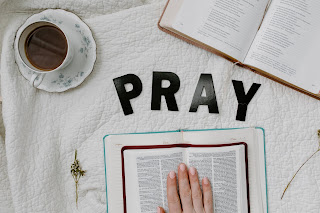“My name is Lisa Henry. I’m forty. And I’m desperate. If you can’t help me I don’t know what I’ll do,” says this clearly anxious woman whose appearance reminds me of the stereotypical 50s housewife, page boy hair style, pink dress gathered at the waist, flaring outward. “Can you help me?”
“My son.”
Silence.
“He… he just told me that he’s … that he’s gay,” she says taking a deep breath. “There, I said it!”
“I gather that’s a problem for you?”
She looks startled. “Of course it’s a problem. How could it not be!”
“Is it a problem for your son?”
“He says it isn’t, but that’s impossible. He was a normal boy. He played baseball. He was always popular.” Pause. “And he grew up in our family.”
“And what was it like growing up in your family?”
“We’re a Christian family. My husband is always praying and reading the Bible. And of course we pray as a family before every meal. We eat together. There are seven of us. My son – the one I’m talking about – he’s my eldest. My husband will never, ever accept this. I’m afraid he’d disown my son, but that’s not going to be necessary because you’re going to help me, right?”“Mrs. Henry, exactly what do you want me to help you with?”
“Telling me how to convince my son he’s not gay.”
“I’m sorry, but there’s no way I can do that. I can’t convince anyone that he isn’t gay and I can’t help anyone to change in any way who isn’t in my office and who doesn’t want to change.”
“That’s the first thing we need to do. We need to convince him he does want to change, that he isn’t gay and if he needs to see you that’s fine.”
“I’m sorry, Mrs. Henry. I can’t do that. I can help you try to come to terms with your son being gay…”
“No way,” she interrupts. “You have no idea what you’re saying! I could never accept such a thing. And even if I could … could … I don’t know, … pretend it’s not happening, my husband would never, ever be able to even look at my son again.”
I realize I have been so taken aback by this woman’s request, that I have been debating with her, rather than dealing with her underlying feelings. “That’s really sad, Mrs. Henry. You must be feeling very sad and scared that there’s going to be this tremendous breach in your family and that you might even lose your son.”
“No, no, no. That’s not going to happen. It can’t happen again. It can’t,” she says, starting to cry.
“I’m sorry, what do you mean it can’t happen again?”
“That’s what happened to me.”
I look at her, totally bewildered.
“I lost my family,” she says in a whisper. “My family were orthodox Jews. When I married outside the religion my family sat shiva for me. I haven’t seen any of them since.”
“I’m so sorry. That must be terribly painful.”
She nods, as tears fall down her face. “But I thought I put it behind me. I made my own family. And I was always going to have that family, the family I have now. You see, that’s why you have to help me, you have to help me not lose another family.”
“I understand why you feel so desperate, but there are some things I can help you with and some things I can’t help you with. I can help you to grieve the family you lost, your family of origin. I can perhaps help you to accept your son’s gayness. And I might even be able to help you find a way to talk with your husband about your son…”
She shakes her head vigorously.
“I understand that seems impossible to you now and it may be impossible, but I can help you to maintain a relationship with your son regardless of how your husband feels…”
“No, that’s not possible either. He would never allow it.”
“Do you love your husband, Mrs. Henry?”
“Yes, of course, what kind of question is that?”
“Does he love you?”
She hesitates for a moment but says, “Yes, yes of course.”
“So your relationship is important to both of you. Perhaps that means you could talk, negotiate…”
“No. My husband makes all the decisions.”
“And did your father make all the decisions?”
“Yes, yes he did. How did you know that?”
“Different religion, but similar way of being in the world.”
“Yes, that’s true.”
“Mrs. Henry, our time is almost up for today and I don’t know if you want to continue working with me or not. I can’t help your son be not gay. I can help you deal with the very painful situation you’re in now, which also brings up a very painful loss in the past. But you’ll have to decide if that’s the kind of work you want to do before you decide whether or not to work with me.”“I don’t know.” Pause. “Can I think about it?”
“Of course. Just call and let me know what you decide. And know that regardless I wish you the best.”









